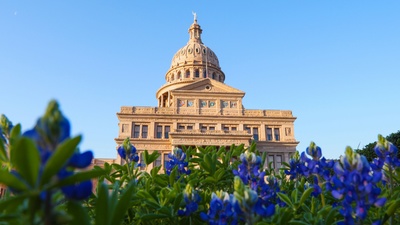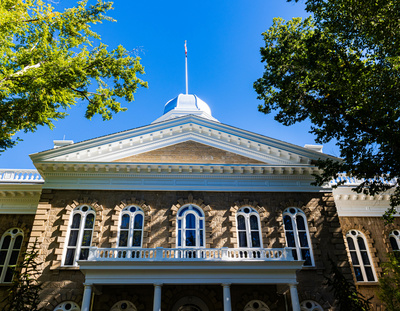
Employment & Labor
How States Are Combating AI Job Threats with Apprenticeships and Career Technical Education
September 16, 2025 | Lauren Johnson
July 6, 2023 | Bill Kramer
-c32a6c-1200px.jpeg)
Key Takeaways:
States are leading a charge against non-compete agreements, which prohibit departing employees from taking jobs within the same industry. Spurred by encouragement from Democrats on the national level, almost a dozen states have enacted laws limiting the use of noncompete provisions in employment agreements. Supporters argue that such provisions lower wages and limit job mobility for workers, and point to the tech industry's success in California, where non-competes have long been banned. Employers argue that noncompete clauses help protect a company’s proprietary information and intellectual property.
But resistance to noncompetes has grown over the past few years. Eleven states and DC have enacted limitations to the enforcement of noncompetes recently and New York could soon join them after lawmakers sent a noncompete ban (NY SB 3100A) to the governor’s desk last week. The bill would void “every contract by which anyone is restrained from engaging in a lawful profession, trade, or business of any kind.” The law would not be retroactive to current employment agreements.
The rising criticism of noncompetes dates back to 2016 when President Obama (D) urged the states to ban or limit noncompete agreements. At the time, three states — California, Oklahoma, and North Dakota — had laws on the book prohibiting noncompetes for over a century. Most of the states that have enacted restrictions on non-competes since then have focused on limiting non-competes only for employees that earn below a certain salary threshold, leaving noncompetes in place for many high-income workers. Only Minnesota joined the three original states with longstanding noncompete bans to broadly prohibit the practice. That law goes into effect on Saturday. However, if Gov. Kathy Hochul (D) signs the proposal on her desk, New York would join this group.
Recent developments on the national stage have helped spur state action. President Biden (D) spoke out against the use of noncompetes in an executive order last year and the Federal Trade Commission (FTC) proposed a new rule earlier this year that would broadly ban noncompete agreements nationwide. The FTC took public comments on its proposal and is poised to enact a rule limiting non-competes. However, legal experts foresee a long judicial battle against any national non-compete ban that will likely be held up in courts for many years.
Expected legal battles then turn the attention back to the states, which are on a firmer legal footing to limit noncompete agreements within their jurisdictions. Keep an eye on blue states to enact new restrictions on non-compete agreements, especially if the FTC’s efforts fall short or are held up in court.
MultiState’s team is actively identifying and tracking this issue so that businesses and organizations have the information they need to navigate and effectively engage with the emerging laws and regulations addressing non-compete agreements. If your organization would like to further track state artificial non-compete legislation, or other labor and human resource issues, please contact us.
For more timely insights like this, be sure to sign up for our Morning MultiState weekly morning tipsheet. We created Morning MultiState with state government affairs professionals in mind — sign up to receive the latest from our experts in your inbox every Tuesday morning. Click here to read past issues and sign up.

September 16, 2025 | Lauren Johnson

July 16, 2025 | Sandy Dornsife

February 26, 2024 | Townsend Brown